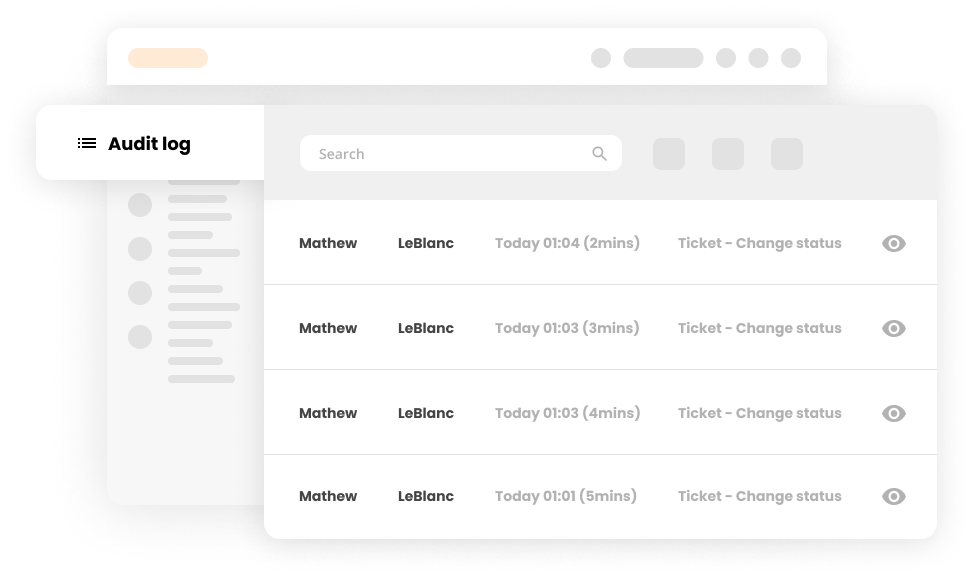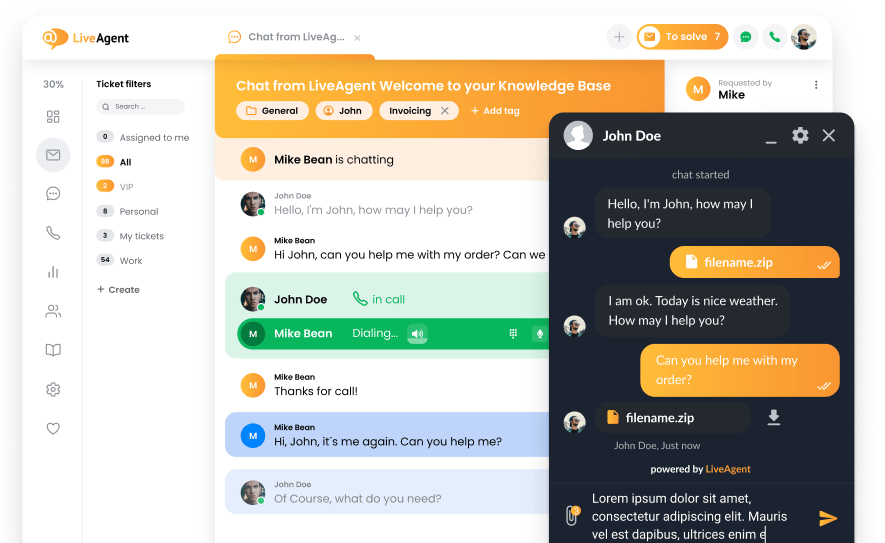What is an audit log?
Track the account and changes made by users and your customer representatives staff. An audit log is a chronological set of records. This documentary evidence of activities automatically tracks actions like the user logging in, a user viewing a ticket, tags changed, the user left ticket, ticket ranking, ticket voice messages, ticket transfer, and much more.
Together with activity logs it provides a more holistic view of your agent’s day-to-day activities.
In your LiveAgent, you can use an audit log custom filter, that displays only certain activities or selected customer representatives.
You can learn more about Audit log in LiveAgent.

Frequently Asked Questions
What is an audit log?
Audit log, also known as the audit trail, is a record of events and changes. Usually these are events related to a sequence of actions or a specific activity. This allows you to track the changes that have been made by agents to a specific ticket.
Who can issue audit logs?
Audit logs can be issued by any agent that serves clients. This allows you to track specific customer-related actions.
How to check audit logs in LiveAgent dashboard?
To check the audit logs in the LiveAgent panel, click 'Configurations', then go to the 'Tools' tab and select 'Audit log'.
![Expert badge]() Expert’s note
Expert’s note
Audit logs enable businesses to maintain transparency and accountability in customer service, ensuring quality service delivery and building trust with clients.


 Български
Български  Čeština
Čeština  Dansk
Dansk  Deutsch
Deutsch  Eesti
Eesti  Español
Español  Français
Français  Ελληνικα
Ελληνικα  Hrvatski
Hrvatski  Italiano
Italiano  Latviešu
Latviešu  Lietuviškai
Lietuviškai  Magyar
Magyar  Nederlands
Nederlands  Norsk bokmål
Norsk bokmål  Polski
Polski  Română
Română  Русский
Русский  Slovenčina
Slovenčina  Slovenščina
Slovenščina  简体中文
简体中文  Tagalog
Tagalog  Tiếng Việt
Tiếng Việt  العربية
العربية  Português
Português 
 Expert’s note
Expert’s note




